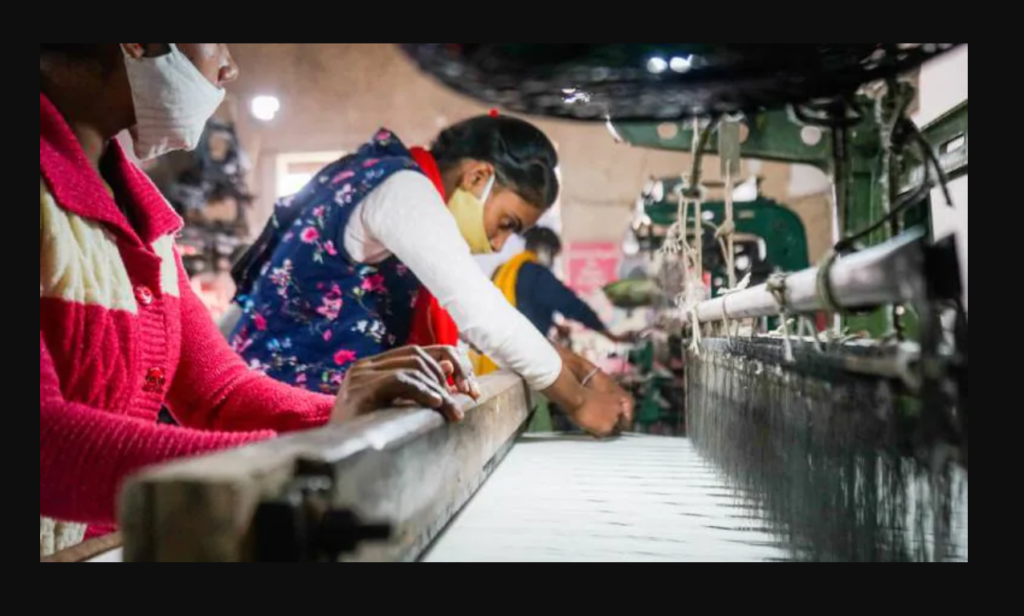The launch of the US-India Alliance for Women’s Economic Empowerment STEM Collaborative was announced by Mukesh Aghi, president and CEO of the US-India Strategic and Partnership Forum during the US-India Alliance Shatter Summit.
A top India-centric American business advocacy group, in collaboration with various US government agencies and a prestigious university, has announced an alliance to increase the number of women in STEM education and the workforce in India.
The launch of the US-India Alliance for Women’s Economic Empowerment STEM Collaborative was announced by Mukesh Aghi, president and CEO of the US-India Strategic and Partnership Forum during the US-India Alliance Shatter Summit.
“India and the US tech synergy is well evinced in India being an IT powerhouse and the US having the most robust tech economy. However, there is still a lacuna in the number of male and female STEM graduates,” Aghi said.
“For India to unleash its full potential, there needs to be a concerted effort to get more young girls and women in STEM (science, technology, engineering and maths),” he said.
The US-India Alliance for Women’s Economic Empowerment is a public-private partnership between the State Department, USAID, USISPF, and George Washington University designed to catalyse transformational commitments to foster women’s economic advancement and inclusion in India, he said.
Under this Alliance, one of the key priorities has been to accelerate women in STEM education and the workforce, the USISPF said, adding that the new catalytic US-India Alliance for Women’s Economic Empowerment STEM Collaborative aims to identify barriers and create opportunities for advancing women and girls in STEM in India.
Radhika Shah, co-president of Stanford Angels and Entrepreneurs and Collaborative Founder and Co-Chair, in her remarks, said as a product of both the Indian and American STEM education systems and having grown up in Ahmedabad under the influence of a Gandhian grandfather, it is her honour to co-found and co-chair the catalytic collaborative.
“We live in a moment of unprecedented opportunity as we race into the digital age an opportunity to ensure every girl and woman benefits from the digital revolution, including access to early STEM education, well-paying STEM jobs, and leadership at the very helm,” she said.
The Collaborative intends to work with leaders across the public and private sectors in both countries’ tapping resources and expertise in government, civil society, and the private sector in order to foster dialogue and catalyse collaboration, resources, innovative solutions, and knowledge sharing, according to USISPF.
Temina Madon, Co-Founder of The Agency Fund and Collaborative Founder Co-Chair said, “To achieve our ambitious goals, we think it will be important to learn from Indian civil society organisations that have been supporting and empowering women for generations.”
“We also need to incorporate insights from economics and psychology, including how to cultivate a sense of belonging for women in technical work. Science and technology can uplift our countries and our diverse communities. But only if women are equal participants,” she said.
“Leaders in technology and those driving social change will be successful in increasing women’s participation in AI-related fields only if more girls are given the opportunity to pursue STEM,” said Deepali Khanna, vice president and managing director, Asia Office, The Rockefeller Foundation, Collaborative Champion.
Michelle Nunn, CEO of CARE USA, Collaborative Champion said she is thrilled to see the launch of the ‘bold’ collaborative.
“CARE’s programmes around the world, including in India, focus on STEM activities as a key strategy to teach and train skills to help women and girls succeed and to transform communities and nations,” she said.
“Increased participation by Indian women in STEM is crucial for India to grow a healthy, diverse scientific ecosystem, helping to address a number of pressing societal concerns in public health, climate change,” said Rajesh Gopakumar, director International Center for Theoretical Sciences, Collaborative Champion.
According to Cole Wilbur, president emeritus, The David and Lucile Packard Foundation, Collaborative Champion the philanthropy sector can play a key role in collaboration with the private sector and governments in bringing about this transition.
It has never been more important now to accelerate women and girls’ leadership in STEM, Wilbur said.
Article Credits: Money Control

Pingback: These Industry Leaders In STEM Show How Science And Business Coexist - SLSV - A global media & CSR consultancy network
Pingback: ‘Nari tu Narayani’: Do Union Budgets account for empowering women? – SLSV – A global media & CSR consultancy network